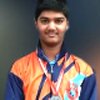The JQ Methodology
As educators, we take into serious consideration the other Q’S, viz. the Intelligence Quotient, the EQ or Emotional Quotient and the SQ or Social Quotient. IQ takes into account the mental ability of the child, how competent he is to grasp and assimilate information and how fast and elegantly he can comprehend and solve problems. EQ takes into account how well adjusted he is emotionally to the world, the harmonious balance between his inner self and the outer life. SQ considers him as a social being, his “smooth” interaction with his peer group, his teachers, parents and elders
Educationists at Centre Point strongly believe in the JQ also. JQ refers to the Joy Quotient and as teachers we take this Quotient into consideration as seriously as we do the others. Children must enjoy learning, for learning without fun is no learning at all. Learning by doing projects, field trips, nature walks, challenging assignments, games and puzzles are all methods of joyful learning. We employ a variety of methods to guard against monotony, the kill –joy. Therefore to ensure our children enjoy learning as much as we enjoy teaching, we brainstorm and discuss with colleagues, plan and programme well in advance and yet keep the flexibility to adapt to changing interests of the class as we go along.
At times a” joyful” lesson may mean a noisy, “indisciplined “class. We remember that when students become actively involved, and no longer remain passive listeners, they talk, discuss, argue, in short, make noise but at the same time they learn much more, from the teacher, from their classmates and from themselves.
May be, not all our students truly realize the boundless joy of moving from information to knowledge to wisdom. But we surely take them by the finger to discover for themselves the joy of moving from ignorance to information and some to knowledge, and leave them at the end of the rainbow, allowing the Einsteins and Shaws to joyfully walk ahead to wisdom.
ICSE schools in nagpur










